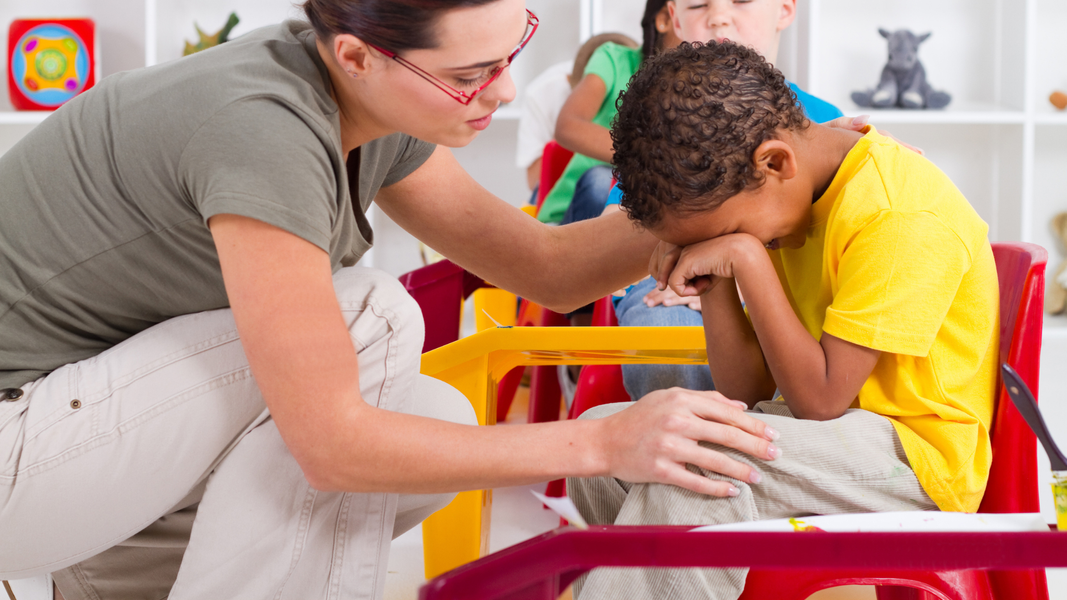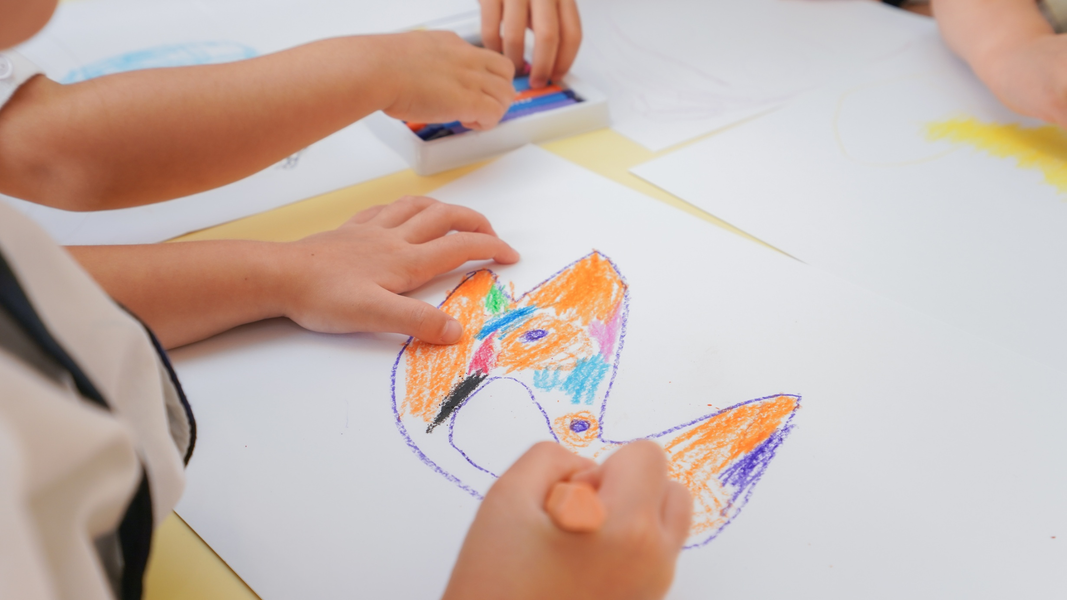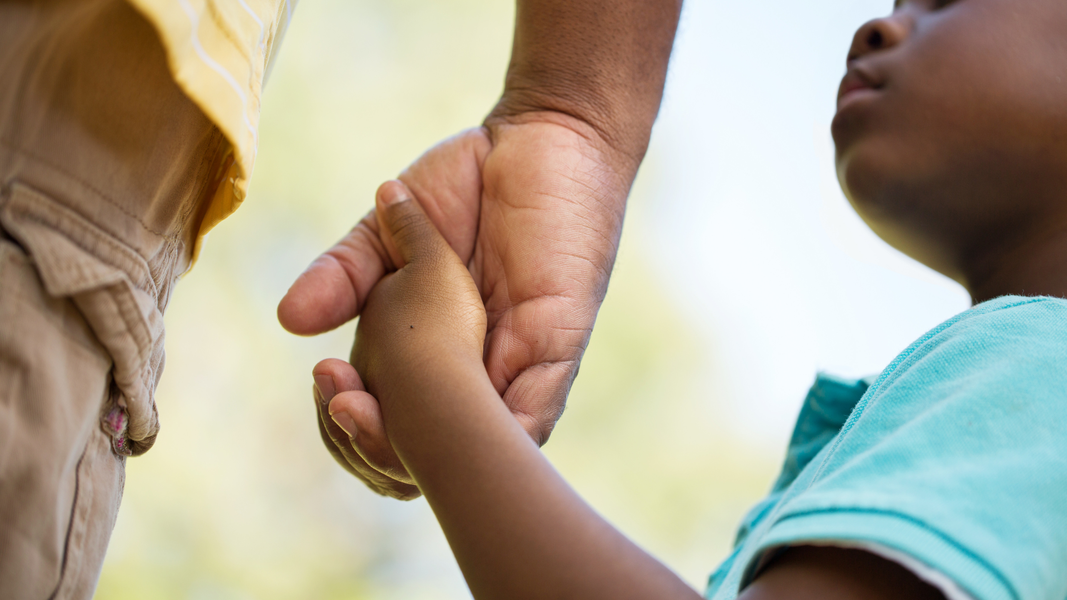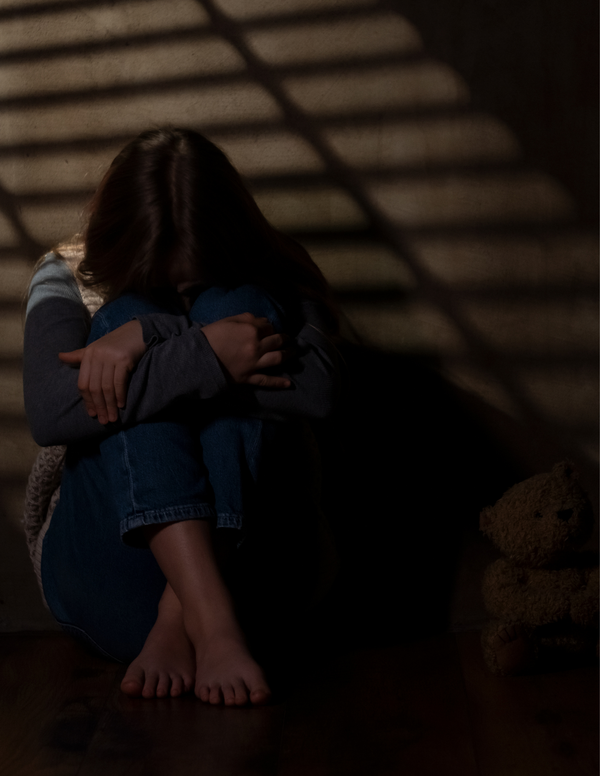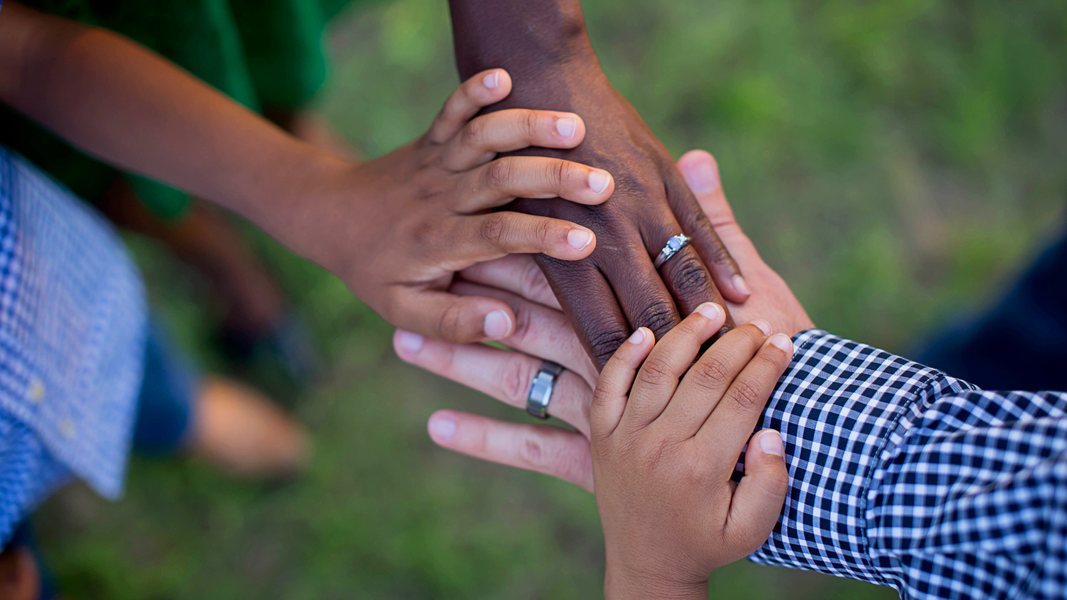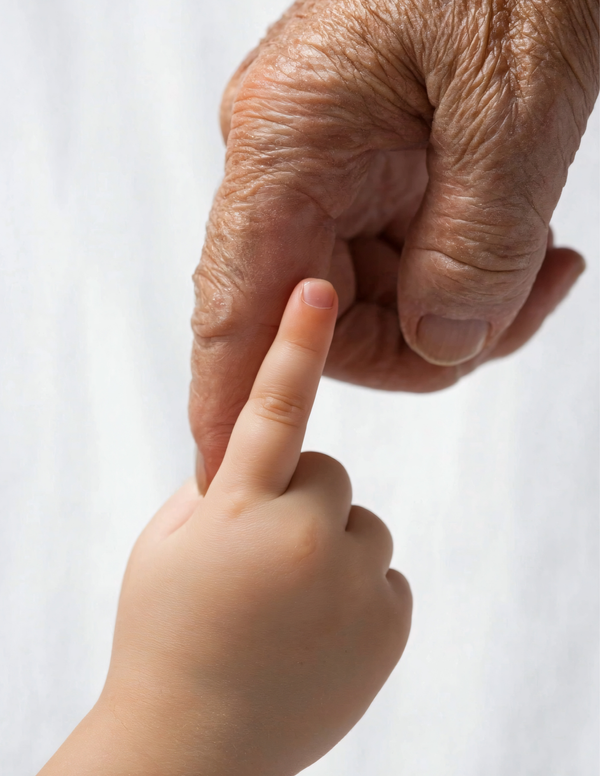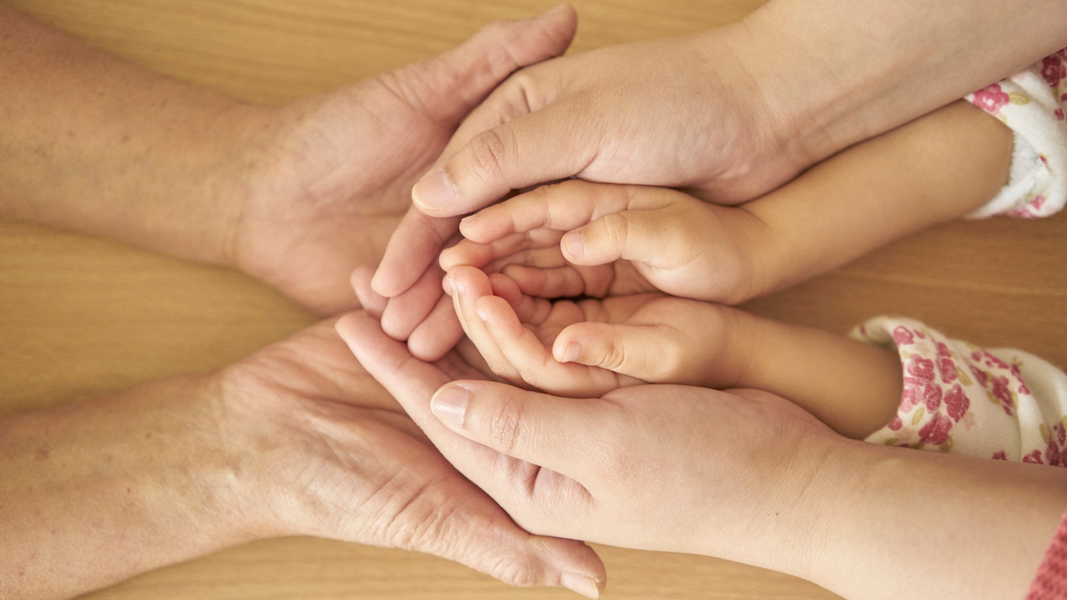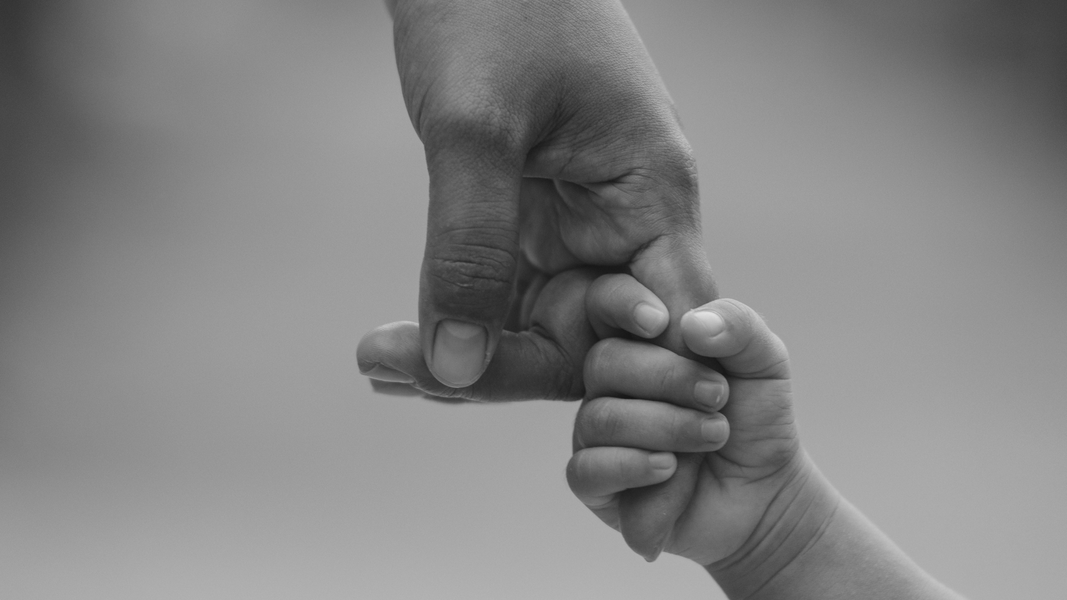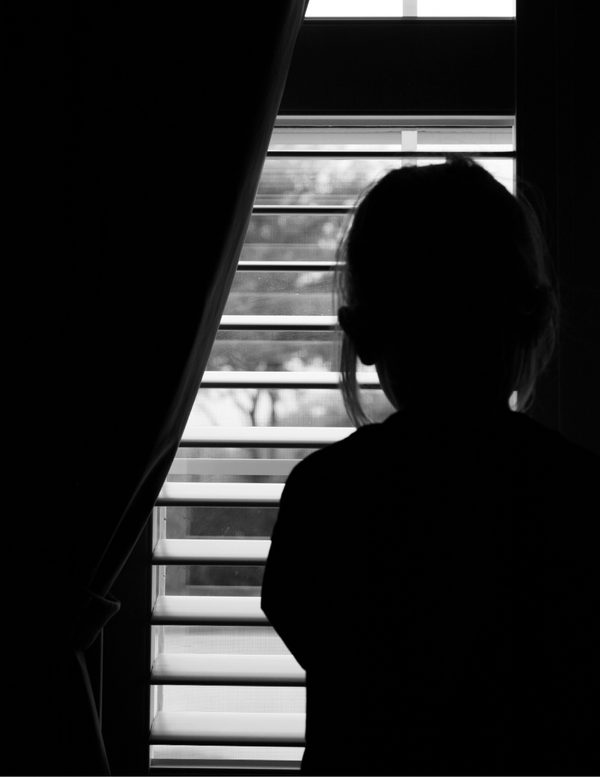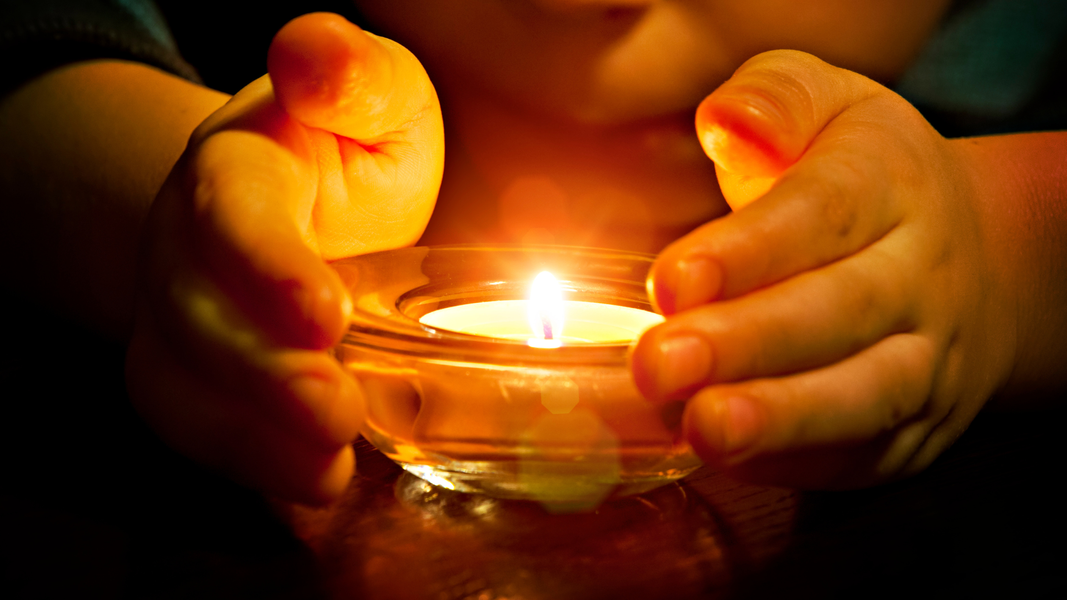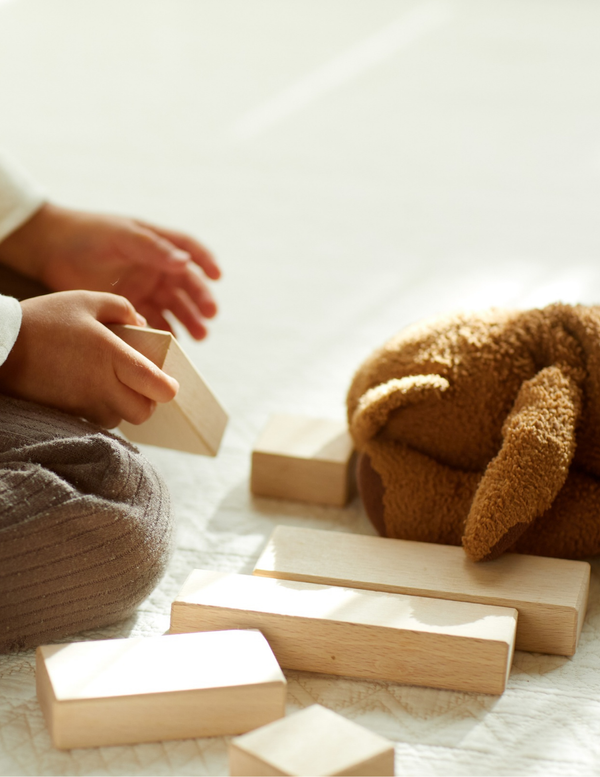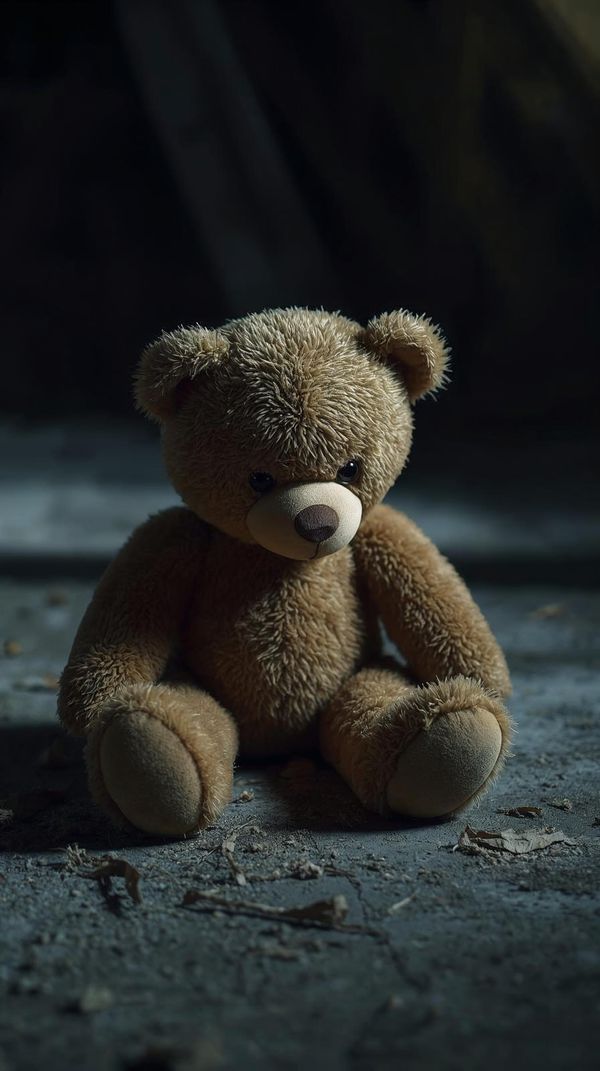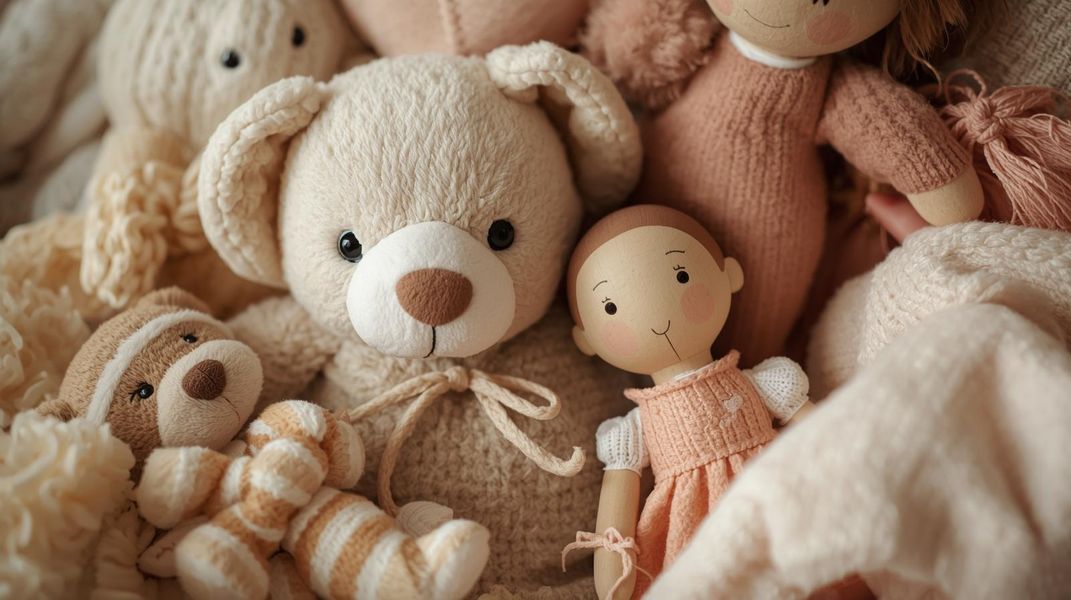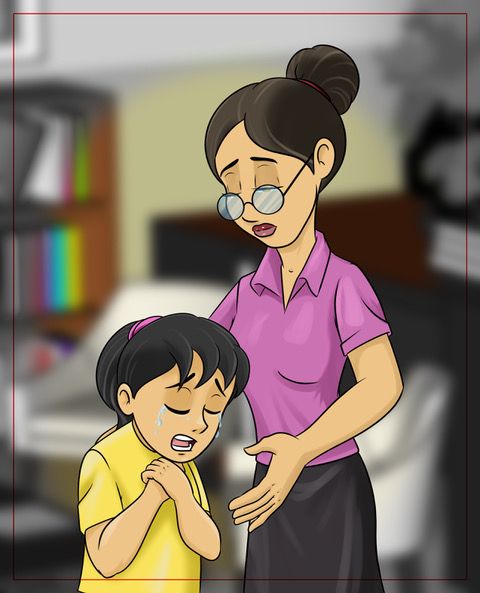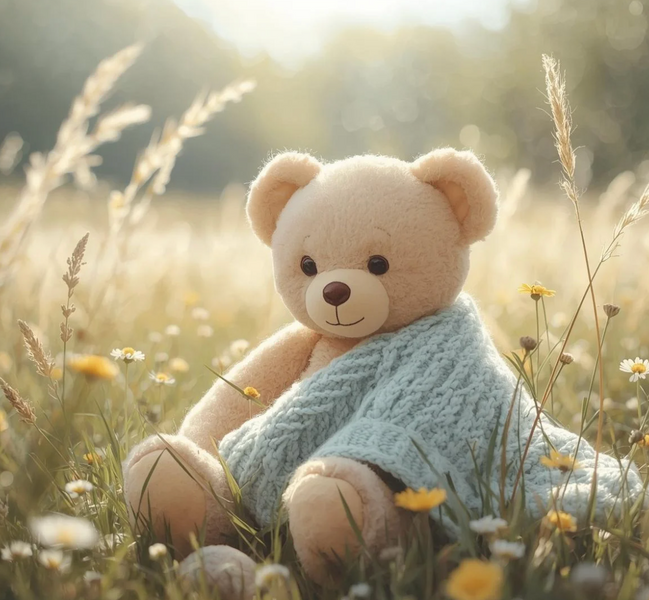Blog
Managing Depression and Anxiety in Everyday Life
Living with depression and anxiety can feel overwhelming, making daily responsibilities, relationships, and self-care more challenging. The good news is that support is available, and you don’t have to face these challenges alone. Virtual depression therapy San Antonio, online anxiety counseling Texas, and telehealth grief counseling are effective options to help you manage symptoms and build coping strategies from the comfort of your home.
Many people search for an online therapist near me to find care that fits...
more7 Ways to Support a Grieving Child in Your Classroom
Teachers play a vital role in supporting grieving children. Children may experience emotional, social, or behavioral challenges in the classroom, and providing understanding and tools can prevent isolation and improve coping. Using therapeutic books like The Terrible, Super Sad Day helps children express feelings and fosters discussions with peers.
Ways to Support:
Create a safe space for emotional expression
Offer flexible academic expectations
Use child grief activities like journaling or...
Healing Childhood Wounds Through Virtual Therapy
Many of the challenges we face as adults—anxiety, depression, relationship struggles, and difficulty managing stress—often stem from unhealed childhood experiences. Inner child healing is a therapeutic process designed to help you reconnect with and nurture the younger version of yourself, fostering emotional growth, self-compassion, and resilience. Start your inner child healing journey by calling 210.705.1749 or filling out a contact card at www.anscounseling.com.
Through...
moreThe Best Grief Activities for Kids Ages 4-12
Child grief activities are critical for helping children ages 4–12 express emotions safely and effectively. Activities like memory boxes, art projects, journaling, and role-play encourage healthy emotional expression. Using therapeutic books like The Terrible, Super Sad Day alongside these activities provides a structured way to explore complex feelings.
Recommended Activities:
Drawing or painting memories of the loved one
Creating a memory box with keepsakes
Journaling feelings and...
Managing Depression and Anxiety in Everyday Life
Living with depression and anxiety can feel overwhelming, making daily responsibilities, relationships, and self-care more challenging. The good news is that support is available, and you don’t have to face these challenges alone. Virtual depression therapy San Antonio, online anxiety counseling Texas, and telehealth grief counseling are effective options to help you manage symptoms and build coping strategies from the comfort of your home.
Many people search for an online therapist near me to find care that fits...
moreA Children's Books About Grief Every Parent Should Know
Selecting age-appropriate children’s books about grief provides an accessible way for children to understand and process emotions. Therapeutic reading is a form of bibliotherapy, helping children normalize feelings of sadness, fear, or anger after a loss. The Terrible, Super Sad Day is designed to guide children through these emotions while offering parents and caregivers practical strategies for support.
Top Tips for Using Grief Books:
Read together and discuss key themes.
Encourage children to ask questions and share...
Red Flags in a New Relationship: What You Should Know
Entering a new relationship can bring joy, excitement, and hope. At the same time, it’s important to recognize early warning signs that could indicate potential issues down the line. Being aware of relationship red flags, understanding healthy boundaries in relationships, and noticing emotional regulation patterns are crucial for building lasting, fulfilling partnerships.
Research in relationship counseling shows that many people overlook subtle cues such as controlling behavior, consistent criticism, or excessive...
moreHelping Your Child Say Goodbye: Creating Meaningful Rituals
Call 210.705.1749 today to connect with a therapist, or visit https://www.anscounseling.com/shop to purchase The Terrible, Super Sad Day by Vanessa Valles LCSW-S, an effective therapeutic tool for children and families processing grief.
Saying goodbye to a loved one is a crucial step in childhood bereavement. Meaningful rituals help children process grief, express emotions, and create lasting memories. Combining child grief activities with therapeutic reading, such as...
moreBoost Your Mental Wellness with Yoga and Relaxation Techniques
Yoga and Progressive Muscle Relaxation for Mental Wellness
Yoga and relaxation exercises are excellent tools to reduce stress, improve mood, and support mental health. Practicing these techniques regularly can complement therapy, whether you’re using online anxiety counseling Texas, online trauma therapist Texas, or telehealth grief counseling.
Why Yoga Helps
Yoga and muscle relaxation work by activating the parasympathetic nervous system—the part of your nervous system responsible for...
moreHow Long Does Childhood Grief Last? A Therapist Explains
How Long Does Childhood Grief Last? A Therapist Explains
Childhood grief varies widely based on age, developmental stage, and the type of loss experienced. Understanding child grief signs and using therapeutic tools, like The Terrible, Super Sad Day, can help parents support children effectively.
Typical Grief Timeline:
Immediate reaction may include sadness, anger, or anxiety
Weeks to months later, children may revisit grief during special occasions or milestones
Ongoing support is essential...
Believe in Yourself: Strategies for Confidence and Emotional Well-Being
If you’re struggling with anxiety, depression, or trauma, it’s important to remember that you can grow, improve, and overcome challenges. At A New Start Counseling, we help people in San Antonio and across Texas access virtual depression therapy San Antonio, online anxiety counseling Texas, and telehealth therapist Texas services to support their mental health.
Call us today at 210.705.1749 or fill out a contact form online at...
moreWhat NOT to Say to a Grieving Child (And What to Say Instead)
Call 210.705.1749 today to connect with a therapist, or visit https://www.anscounseling.com/shop to purchase The Terrible, Super Sad Day by Vanessa Valles LCSW-S, a therapeutic tool for children and families navigating grief.
Children processing grief are highly sensitive to language. What adults say—or don’t say—can significantly impact a child’s ability to express emotions and process loss. Using therapeutic books, such as The Terrible, Super Sad Day, provides a structured, safe way to...
moreHow Are You Feeling? Take a Minute to HALT for Your Health
How do you feel right now? Great? Okay? Not so good? If you aren’t feeling your best, taking a moment to HALT is a simple but powerful step for your mental and physical health. If you need support, call us today at 210.705.1749 or fill out our contact card online at www.anscounseling.com to schedule your first session. If you’re struggling with your mental health or just feeling off, taking a moment to HALT can make a real difference and addressing each of these areas is a simple...
moreBibliotherapy for Kids: Using Books to Heal from Loss
Call 210.705.1749 today to connect with a therapist, or visit https://www.anscounseling.com/shop to purchase The Terrible, Super Sad Day by Vanessa Valles LCSW-S, a therapeutic resource for children, parents, and caregivers navigating grief.
Bibliotherapy, or using books as a therapeutic tool, is an effective approach to helping children process grief. Children often relate to stories in ways that encourage expression, reflection, and understanding. Using therapeutic reading alongside child grief...
moreBelieve in Yourself: How to Build a Growth Mindset and Reach Your Goals
Believing in yourself is the first step toward growth, success, and resilience. No matter what anyone says, you can improve, learn, and achieve your goals. Staying positive and encouraging yourself is essential—saying things like “I can do it,” “I got this,” or “I believe in myself” reinforces your confidence and motivates progress. At A New Start Counseling, we support clients through virtual depression therapy San Antonio, online therapy Texas, and other virtual counseling options. If you’re looking for a...
moreWhen Should I Seek Grief Counseling for My Child?
Deciding when a child needs grief counseling can be challenging. While grief is a natural response to loss, some children exhibit persistent or intense symptoms that indicate professional support may be beneficial. Recognizing childhood bereavement symptoms and using therapeutic resources, like The Terrible, Super Sad Day, can help guide families.
Signs a Child May Need Counseling:
Intense sadness or irritability lasting several weeks
Withdrawal from friends, family, or favorite activities
Declining school...
Is Online Therapy as Effective as In-Person? What Research Shows...
One of the most common questions people ask when considering mental health treatment is: “Is online therapy as effective as in-person therapy?” It’s a valid concern. When dealing with conditions like PTSD, complex trauma, anxiety, or depression, you want to ensure that the treatment format will actually help. You can contact A New Start Counseling today at (210) 705-1749 or visit www.anscounseling.com to schedule your first appointment. The good news is that research consistently shows...
moreHow to Help a Child Cope with the Loss of a Grandparent
The death of a grandparent can be a child’s first experience with significant loss. Understanding childhood bereavement symptoms and providing supportive tools can help children process grief in a healthy way. Using therapeutic resources, such as The Terrible, Super Sad Day, offers a structured and comforting way for children, parents, and caregivers to work through this loss.
Recognize Signs of Grief
Children may show signs of grief differently depending on age. Younger children may ask repeated questions, have nightmares, or display regressive...
moreIs Trauma Therapy Covered by Insurance? Understanding Your Mental Health Benefits
One of the most common questions people ask when considering treatment is, “Is trauma therapy covered by insurance?” The cost of mental health care can feel like a significant barrier, especially when you're already dealing with the challenges of PTSD, complex trauma, or Adverse Childhood Experiences (ACEs). Contact A New Start Counseling today at (210) 705-1749 or visit www.anscounseling.com to schedule your first appointment.
Understanding your insurance coverage for...
moreThe 5 Stages of Grief in Children: What Parents Need to Know
Grief is a complex process, and children experience it differently than adults. Understanding the five stages of grief—denial, anger, bargaining, depression, and acceptance—can help parents support their child. Combining knowledge of childhood bereavement symptoms with therapeutic tools like The Terrible, Super Sad Day can promote healthy processing of loss. Call 210.705.1749 today to connect with a therapist, or visit https://www.anscounseling.com/shop to purchase a print, ebook, or Kindle copy of...
moreWhat Is the Treatment for PTSD? Evidence-Based Approaches That Work
f you've been diagnosed with Post-Traumatic Stress Disorder (PTSD) or suspect you might have it, you may be wondering: What is the treatment for PTSD and can therapy truly help? Post-Traumatic Stress Disorder (PTSD) is a serious mental health condition, but it's also highly treatable
At A New Start Counseling in San Antonio, we specialize in trauma-informed counseling, including EMDR therapy, trauma-focused CBT, and online PTSD treatment. Understanding your treatment...
moreExplaining Death to a 5-Year-Old: What Therapists Recommend
Explaining death to a 5-year-old can feel overwhelming, but age-appropriate conversations can help children process grief and build resilience. Children at this age often view death as temporary and may ask many questions about what happened and why. Understanding childhood bereavement symptoms and using practical tools can support this process.
Use Simple, Honest Language
Therapists recommend using clear terms like “died” or “passed away.” Avoid euphemisms such as “gone to sleep,” which may confuse young children. Reading The Terrible, Super Sad Day...
moreHow to Cope with Trauma: Practical Strategies for Healing
Learning how to cope with trauma is one of the most important steps in your healing journey. Whether you're dealing with PTSD, complex trauma, or the lasting effects of Adverse Childhood Experiences (ACEs), developing effective coping strategies can help you manage symptoms, reduce the power of trauma triggers, and begin to reclaim your life.
Understanding Trauma and Its Impact
Trauma fundamentally changes how your brain and body respond to stress and perceived danger. Whether you’ve experienced a...
more10 Signs Your Child is Struggling with Grief (And What to Do)
Children process grief differently than adults, and it is not always obvious when they are struggling. Recognizing childhood bereavement symptoms and providing supportive resources, including therapeutic books for grieving children, can help children process loss and begin to heal.
1. Changes in Mood or Behavior
Irritability, sadness, or withdrawal may signal difficulty coping. Reading The Terrible, Super Sad Day can provide language and guidance to help children express these emotions.
2. Regressive Behaviors
Bedwetting,...
moreWhat Are Trauma Triggers? Understanding and Identifying Your Triggers
Trauma triggers are one of the most misunderstood aspects of healing from traumatic experiences. If you've ever felt suddenly overwhelmed by anxiety, panic, or intense emotions seemingly out of nowhere, you may have encountered a trauma trigger. Call (210) 705-1749 or visit www.anscounseling.com to schedule an initial appoint. Understanding what trauma triggers are and learning to identify them is a crucial step in your healing journey. Recognizing your triggers helps you know when to seek...
moreHow to Talk to Your Child About Death: An Age-by-Age Guide
Talking to children about death can feel overwhelming, but age-appropriate conversations are key to helping them process loss. Children understand death differently depending on their developmental stage, and providing supportive tools like The Terrible, Super Sad Day can guide both conversation and emotional expression.
Young Children (Ages 3-5)
At this age, children may see death as temporary. They may ask repeated questions or display grief through behavior rather than words. Using a children’s book about death, like...
moreMen's Mental Health: Why More Men Are Choosing Virtual Therapy
For decades, men have been significantly less likely than women to seek mental health treatment. Cultural expectations around masculinity, stigma about appearing weak, and practical barriers have all contributed to a troubling gap in care. However, this year marks a turning point. More men than ever before are recognizing the signs you need counseling and taking action to prioritize their mental health. A key factor driving this change is the rise of virtual therapy for men and online counseling for men, which addresses many of the traditional obstacles that kept men from seeking help. If...
moreGentle Ways to Help Children Remember: Creating Healing Memorials After Loss
I remember sitting across from a young child, no older than seven, as they clutched a crayon-drawn picture of their loved one who had passed. It was their way of holding on, of saying, “He mattered.” Grief in children often shows up like this, not in words, but in colors, drawings, rituals, and small acts of remembrance. When a child loses someone they love like a parent, grandparent, sibling, or close friend the world shifts beneath them. Routines change. Familiar voices disappear. Life suddenly feels unstable. While we can’t erase their pain, we can offer them tools to hold onto...
moreWorkplace Burnout and Mental Health: How Virtual Counseling Can Help
The modern workplace can be demanding, fast-paced, and relentless. While some stress is normal, chronic workplace stress can evolve into burnout, a state of physical, emotional, and mental exhaustion that affects every aspect of your life. If you need to talk contact A New Start Counseling today at (210) 705-1749 or visit www.anscounseling.com to schedule your first appointment. If you've been feeling drained, cynical about your job, or unable to keep up with your responsibilities, you might be experiencing burnout....
moreHelping Children Create Meaning and Resilience After Loss
Grief doesn’t only bring pain—it can also open pathways to growth, connection, and resilience. When children experience loss, helping them make meaning of what’s happened becomes essential not just for healing, but for weaving the loss into their life’s unfolding story. This process, known as meaning-making, invites children to discover purpose, remember what was lost, and find strength in the bonds that remain.
What is Meaning-Making?
Meaning-making is the process by which children and adults learn to understand and integrate a loss in a way that makes life...
moreHow to Know If You Need Therapy: 10 Signs It's Time to Talk to Someone
If you've been asking yourself "do I need therapy," this guide will help you identify when to see a therapist and what signs indicate it's time to reach out for professional support.
1. Your Emotions Feel Overwhelming or Out of Control
Everyone experiences difficult emotions, but when sadness, anxiety, anger, or fear become so intense that they interfere with your daily life, it may be time to seek help. If you find yourself crying frequently, feeling numb, or experiencing emotional outbursts that seem disproportionate to the situation, these are signs you need...
moreWhen to Be Concerned — Recognizing Prolonged Grief in Children
We all expect grief to ebb and flow. A child may weep today, laugh at a memory tomorrow, and feel calm for weeks before sadness resurfaces. That’s normal. But sometimes, grief doesn’t loosen its hold, especially in children, where the markers of healing can look different than in adults. Learning to recognize when grief becomes prolonged, turning into a pattern that interferes with daily life—is an important step in guiding a child toward healing.
What Is Prolonged Grief in Children?
Also known as complicated grief, prolonged grief occurs when a child remains deeply stuck in...
moreMoving Through the Storm: From Emotional Dependency to Healthy Healing
Breaking up is never just about two people ending a chapter, it’s about unwinding deep emotional attachments and learning to stand strong again. If you’re feeling caught in the loop of wanting to reconnect while also knowing it’s unhealthy this is for you.
Emotional Cravings After a Breakup
You might feel tempted to reach out because your brain remembers the joy and wants more.
You may define yourself as “self-sabotaging” when you act on that impulse but often that’s your brain protecting you from the unknown.
Consistent...
Meaning-Making and Resilience-Building in Child Grief
Grief can feel like a heavy burden for children, especially when they don’t yet have the words or tools to understand their feelings. But grief also holds the potential for growth, resilience, and meaning-making—processes that help children not only survive loss but find new ways to live with it.
Meaning-making in grief means helping children create a personal understanding of what the loss means to them and how it shapes their story. Resilience-building focuses on strengthening a child’s ability to cope, adapt, and find hope despite the pain.
Why Meaning-Making...
moreWhy Breakups Hurt So Much And How Your Brain Is Trying to Heal
When a relationship ends, it’s not just your heart that aches—your brain is going through a storm of chemical changes. Here’s what’s really happening behind the scenes, and why giving yourself time and space matters:
1. Your Bonding System Is Waking Up
Relationships tap into your brain’s bonding system—driven by oxytocin and vasopressin. When you break up, your brain yearns for that connection. This isn’t weakness—it’s biology reminding you someone mattered. Comfort from loved ones helps soothe this system and eases the emptiness.
...
moreUnderstanding Complicated Grief in Children
Grief is a natural, though deeply challenging, part of life. Most children, with time and support, begin to adjust after a loss. They cry, express sadness, ask questions, and eventually find ways to carry their memories forward while returning to their daily lives. But sometimes grief doesn’t follow this pattern. When grief lasts longer than expected, or becomes intense and overwhelming, it may be what professionals call complicated grief or prolonged grief disorder.
Understanding complicated grief in children can help caregivers recognize when a...
moreDon’t Ask for Permission to Fly. Your Wings Were Meant to Soar!
There comes a point in life where you have to stop waiting for someone else to give you permission. Permission to shine, to speak up, to dream boldly, and to be your full, radiant self. Your wings? They belong to you. You don’t need approval to fly. And your light? It’s yours to share with the world, not to be dimmed by someone else’s discomfort.
You are not here to shrink. You are here to shine.
You Were Made to Be Seen
Everyone has unique gifts and talents and yet, it’s easy to feel like you should tone yourself down to make others more...
moreHonoring Milestones Without the Person They Loved
There are certain moments in a child’s life that are marked by joy, anticipation, or tradition—birthdays, holidays, school performances, first days, and graduations. But after the death of someone they love, these milestones can feel different. Heavier. Lonely. Even confusing.
For children, the absence of a parent, grandparent, sibling, or close family member at one of these “special days” can quietly deepen their grief, even if it’s been weeks or months since the loss. Sometimes the moment feels off without them. Sometimes the excitement disappears altogether. And often, kids don’t...
moreTaking the First Step: Overcoming the Top 4 Challenges in Adult Individual Counseling
Seeking individual counseling for adults can feel like a major life decision. Even when change is needed, the process of finding support can bring up unexpected hurdles. At A New Start Counseling Services, we believe that recognizing these common challenges is the first step toward overcoming them. Our goal is to provide a safe, trusting, and confidential space so you can begin your journey toward healing and personal growth with confidence.
moreMotivation vs. Consistency: How Motivational Interviewing Helps You Turn Dreams into Action
We all want to change something in our lives—maybe it's ending an addiction, leaving a toxic relationship, starting a workout routine, or just showing up for ourselves more consistently. Motivation is powerful… but motivation alone isn’t always enough to get you where you want to go. The truth is, motivation can come and go. It’s consistency and the support to stay consistent that truly makes the difference.
So how do we get from “I want to change” to actually following through? That’s where Motivational Interviewing comes in.
What Is Motivational...
moreHelping Children Return to Routine, School, or Community After a Loss
When Life Starts Again....
After the death of someone close, the world may feel unrecognizable to a grieving child. Normal schedules, school, and social environments might feel heavy or overwhelming. Yet carefully reintroducing routine—school, activities, the community—can serve as a gentle reminder that life continues, while holding space for their grief.
Routine doesn’t erase pain. Instead, it offers familiar building blocks: predictability, purpose, and social connection. These are powerful anchors during a storm of sorrow.
...
moreFeeling Anxious? Here’s What to Tell Yourself — And How Therapy Can Help
Feeling Anxious? Here’s What to Tell Yourself — And How Therapy Can Help
Anxiety has a way of sneaking up on us. Sometimes it’s a racing heart, a restless mind, or a tightness in your chest that won’t seem to go away. Maybe your thoughts are filled with “what ifs,” or you’re constantly trying to plan for every possible outcome. Sound familiar?
First things first: take a deep breath. You are not alone. Anxiety is something many people experience and the good news is that there are ways to manage it, cope with it, and live a full life even with those feelings present.
At...
moreSupporting Your Own Grief While Parenting Through Loss
When Your World Has Changed Too
Grieving a loss while caring for a child can feel deeply overwhelming—like walking a tightrope between your own pain and the need to stay emotionally available. Yet your healing matters not only for you but also for the child who looks to you for safety, comfort, and emotional guidance.
Supporting yourself through grief is not selfish — it’s essential. When you care for your own emotional health, you model healthy coping and create a steadier foundation from which you and your child can both...
moreLetting Go Isn’t Giving Up — It’s Choosing You
The Courage to Let Go
Life teaches us many lessons, and one of the most important is learning when and how to let go. It’s never easy to walk away from something you’ve invested so much time, energy, and hope into. Whether that’s a relationship, a job, a belief, or even a part of yourself. Letting go doesn’t mean you are weak or that you’ve lost. In fact, it can be one of the bravest and most powerful choices you make. When you decide to let go, you’re choosing to stop fighting for something that no longer serves your peace or growth. You’re choosing to...
moreChild-Friendly Memorial Ideas: Helping Children Honor and Remember Loved Ones
When a child loses someone they love, they may feel left out of the grieving process—especially when traditional funerals or memorials are geared toward adults. But including children in memorial rituals can help them feel connected, comforted, and validated in their grief.
Memorial activities designed for kids offer tangible ways to process loss, keep memories alive, and make sense of a confusing experience. These child-friendly rituals can take place at a formal service, at home, or even virtually, and they allow children to say goodbye in ways that are emotionally appropriate and...
moreBusy But Burnt Out? When Constant Doing Is a Trauma Response
Be kind to your mind. It works hard for you every day and it deserves rest. If you're constantly on the go, always checking the next thing off your list, and feeling like you’re only valuable when you're achieving… we want to talk with you.
At A New Start Counseling, we see you. You might look calm and successful on the outside, but inside, you’re exhausted.
You’re not lazy. You’re not broken. You may just be stuck in survival mode. And we’re here to help.
When Busyness Becomes a Way to Cope
For...
moreGrief Activities for Children: Creative Ways to Help Kids Express Emotion and Heal
When a child experiences the death of someone close to them, it can be hard for them to put feelings into words. Instead, grief often shows up through behavior—clinginess, anger, withdrawal, or even moments of laughter. That’s why grief activities designed for children can be so powerful. They offer a safe, developmentally appropriate way for children to process emotions, express what they’re feeling, and begin to heal.
Whether the loss involves a parent, grandparent, sibling, or pet, these activities help children externalize emotions, develop emotional literacy, and maintain a...
moreLove. Joy. Abundance. Gratitude. You Deserve These — Let’s Reconnect With Them Together.
Do these words feel far away right now? Love. Joy. Abundance. Gratitude. They’re powerful. They’re healing. They’re real. And they’re not just for other people. They’re meant for you, too.
When you’ve been in relationships, jobs, or life situations that drain you instead of filling you, those feelings can begin to fade. You might start to feel numb, bitter, or lost — like you’re stuck in something you can’t quite name, but it weighs on you every day.
At A New Start Counseling, we want to help you reconnect with what...
moreWhy Memorials Matter for Kids
When a child experiences the loss of someone they love, participating in memorial rituals can bring comfort, connection, and a sense of clarity. However, traditional funerals aren’t always designed with children in mind—leaving them unsure of how to be involved or how to process what’s happening. That’s where child-friendly memorial ideas come in. These thoughtful, age-appropriate activities help bridge that gap, giving children ways to express their grief, stay connected to the person they lost, and begin to heal. Tools like The Terrible, Super Sad Day by Vanessa Valles, LCSW-S,...
moreYour Life Is Yours: Learn to Trust Yourself and Set Healthy Boundaries in Therapy
It’s a beautiful thing to have people in your life who care about you, who cheer you on and want to see you thrive. However, sometimes, even with the best intentions, those same people may push their own expectations, opinions, or dreams onto you.
And that can feel… confusing.
At A New Start Counseling, we want you to know: you don’t have to live someone else’s version of your life. Your dreams, your boundaries, and your voice matter — and we’re here to help you learn how to honor them.
Learning to Tell the Difference...
moreHealing Through Connection: Grief Activities for Children and Families
When a child experiences the loss of a loved one, they’re not just grieving the person they are grieving changes to their world, their routine, and their sense of safety.
Grief is overwhelming for anyone. But for children, who often don’t yet have the language or life experience to make sense of their emotions, hands-on, creative, and therapeutic activities can be powerful tools for healing.
Below are several grief activities for children that promote emotional expression, connection, and long-term resilience. Whether you're a parent, caregiver, or therapist, these approaches...
moreYou Don’t Need Permission to Soar: Reconnect with Your Strengths Through Virtual Counseling
If you’ve been feeling lost, stuck, or overwhelmed, you’re not alone and you don’t need anyone else’s permission to begin again.
At A New Start Counseling, we believe that healing begins when you say yes to yourself. Whether you're trying to find clarity, rebuild your confidence, or simply catch your breath, we’re here to help you find your vision, your voice, and your way forward.
Strength-Based Therapy to Help You Move Through the Weeds
Life has a way of piling up. Stress, self-doubt, burnout, anxiety...
moreThe Terrible, Super Sad Day
Isabella is a young girl whose family has a traumatic event happen. Isabella struggles to feel better on her own after the loss and trauma. Her parents take her to meet with a mental health counselor, Ms. Vanessa, to work on regaining a sense of mental wellness. Isabella participates in sessions and learns different skills to help her feel better.
“The terrible , super sad day” is a heartfelt and inspiring story of resilience and recovery. After a traumatic event shakes her world, young Isabella is left struggling to cope with the weight of loss and emotional pain. Unable to feel...
moreWhat Words to Use When Explaining Death to Kids
When I first started in my field a mother came into my office with her four year old son. Her own mother had just died after a long illness, and she was struggling with how to get him to understand she had died. She looked at me and said, “I told him Grammy went to sleep and is not coming back and now he’s terrified of bedtime.” She meant well. We all do. However, when it comes to explaining death to children, the words we choose matter a lot.
As adults, we are often tempted to soften the blow with phrases like “passed away,” “gone to a better place,” or “went to sleep.” These...
moreFeeling Anxious About New Experiences? How Therapy Can Help You Feel More Confident and Calm
Trying something new? Whether it's starting a job, going to a social event, or simply stepping outside of your routine can make anxiety show up fast.
If you've ever felt your heart race, your stomach tighten, or your mind fill with "what ifs" in unfamiliar situations, you're not alone. At A New Start Counseling, we want you to know that this is a normal response, and we’re here to help you navigate it with care and confidence.
...
moreHow to Explain Death to a Child
I remember a father once sitting across from me in the therapy room, nervously wringing his hands. His daughter had just lost her grandmother, the woman who baked cookies every Sunday, who took her to church and who tucked her in when he had to work late. Now she was gone. “She keeps asking when Grandma is coming back,” he whispered, eyes wide with worry. “What do I say? I don’t want to scare her.” It’s a question I’ve been asked more times than I can count.
How do you explain death to a child?
The truth is, it’s never easy. But it’s incredibly important....
moreFeeling Disconnected? How Therapy Can Help You Rebuild Your Life One Step at a Time
When we’re depressed, it’s common to pull back from the people, places, and activities that once brought us joy. We stop texting back. We cancel plans. We lose motivation for things we used to love — and over time, life can start to feel smaller, lonelier, and harder to re-engage with.
At A New Start Counseling, we want you to know: you don’t have to stay stuck, and we’re here to help.
Depression Can Shift — And So Can You
Depression often tells us to shut down. It convinces us that we don’t have the energy, that we...
moreHelping Children Grieve: Loving Guidance Through Loss
I’ll never forget the day they walked into my office—a quiet, wide-eyed six-year-old, barely clinging to the edges of their world after losing a parent. It was their first time in therapy. They didn’t know what to say. Honestly, they didn’t say much at all. Their little body seemed to carry the full weight of their loss, and the silence between us was heavy. They weren’t just mourning the death of a parent. They were mourning the loss of everything that once made life feel safe. Their world had been rearranged overnight: A new home. A new bed. A new school, a new routine, a new person...
moreFeeling Low? How Online Therapy in Texas Can Help You Navigate Depression
Depression can be difficult. It doesn’t always look the same, and it certainly doesn’t feel the same for everyone. Some days, it may feel like a fog you can’t shake. Other days, it might show up as irritability, exhaustion, or even disconnection from people and things you once loved. What can be even more confusing is not always knowing why you feel this way.
If this sounds familiar, please know you’re not alone.
As a licensed mental health clinician, we work with many individuals who are navigating the ups and downs of depression. One important thing to remember is...
moreWelcome
Welcome to our site! We are in the process of building our blog page and will have many interesting articles to share in the coming months. Please stay tuned to this page for information to come. And if you have any questions about our business or want to reach out to us, we would love for you to stop by our contact page.
Thank you!
more

